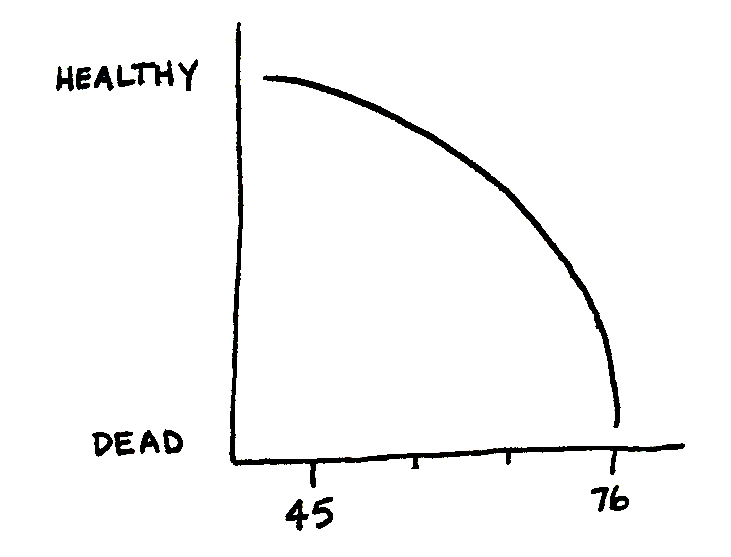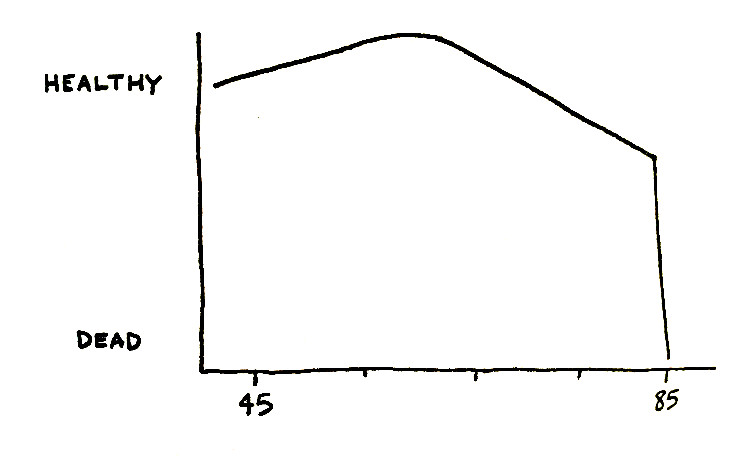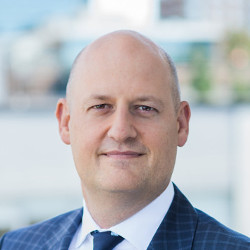Younger Next Year
Sep 15, 2022
Several years ago, I was able to attend a talk by Chris Crowley, co-author of Younger Next Year (along with his physician, Dr. Henry Lodge), a book about living healthily and with vigor and energy.
Crowley was 70 when the book was published, so it was written with some life perspective. Lodge was only 46 at the time of publication and died in 2017 at age 58 from prostate cancer. As in financial planning, there are no certainties with health, only probabilities. This book helps us make it more probable to live a longer and healthier life, but it can’t prevent a car accident or most cancers.
The premise of the book is that while we have no control over our chronological age, we have a tremendous amount of control over our biological age. Using science, humour, and an appeal to common sense, Crowley and Lodge walk the reader through the process of taking stock of their health and how they can make improvements, actually changing the mindset of ageing. The crux is to transform our thinking of our future from this:

to this:

Since the first printing in 2004, the science of longevity has made even greater strides, and there’s every reason to believe we can live even longer and healthier.
The human body ages, but the rate of decay can be influenced by our habits – diet, exercise, sleep, and mental outlook. There are two basic biological states – growth and decay. We all assume we grow until maturity in the 18–25-year range, then begin to decay. But that need not be the case, the authors illustrate.
This isn’t a book about weightlifting or endurance running or cycling. It’s about understanding what signals we send our body to make it decay or grow, and then helping each person find for themselves what they can do to bring on the growth. Let’s face it, none of us is perfect, and there’s always room to improve. And that’s the message – find a way to improve your habits, which will bring on growth, or at worst, a slowing of the decay.
I very much appreciate the scientific approach presented in the book, and the fact that they avoid the dryness of textbook prose. It’s very colloquial with lots of real-life stories to keep the reader engaged. With understanding comes empowerment.
The latter half of the book focuses on creating the habits that can use that empowerment to improve our lives. I recall an old phys-ed instructor telling me that my body wasn’t just there to move my brain around, but that its capabilities were so much more. The key is to find physical activity we enjoy, and that feeds back into our biological mechanisms for cellular growth.
One expert on ageing told me the key to mobility is simply to move every joint in every way, every day. Keep the plates on a high shelf, the pots and pans low, and vacuum/sweep a lot! And he said it’s a good idea to live in a multi-story home with a bad memory – it keeps you going up and down the stairs looking for things!
Since the original publication in 2004, there are now books specifically for women (unimaginatively titled Younger Next Year for Women), and also ones for losing weight, eating better, following a personalized exercise program, and maintaining a healthy back.
I’m re-reading the original book now to be inspired again to tilt the odds in my favor for a long and healthy, active life. And finding more fun ways to be active than doing housework….
Business Owners
The most overlooked area of financial planning for business owners and incorporated professionals is the lack of integration between corporate and personal assets. When the majority of your assets are in your corporation you need very specific, specialized and personalized financial advice.
Learn More







